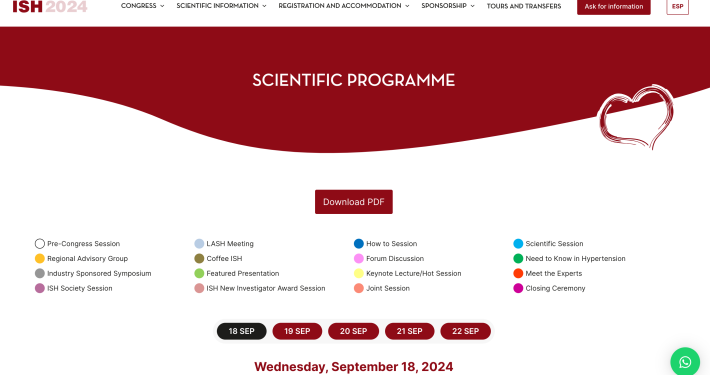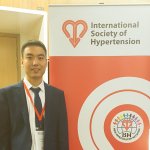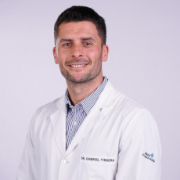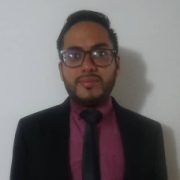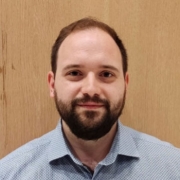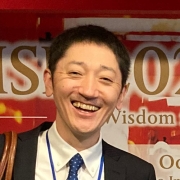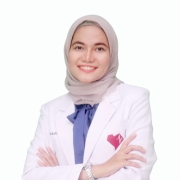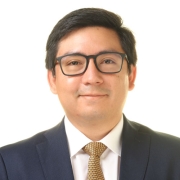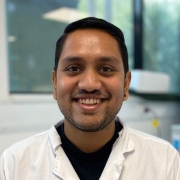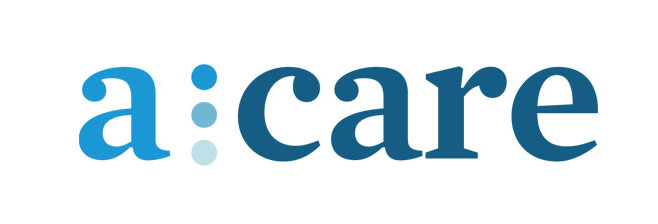Tell us a little bit about yourself
I am doing my Ph.D. degree and will graduate from Peking University (PKU) in July, 2019. My research focuses on workplace health promotion especially about hypertension prevention and management in the workplace.

When did you become interested in science?
During my undergraduate studies, I was involved in an international collaborative project on the investigation of non-commercial alcohol consumption in rural China, supervised by Prof. Guangming Mi. As part of my work there, I participated in the field survey, data collection and analyses, and also had my first article published, which greatly inspired and encouraged me to seek higher goals in public health.
In 2014, I obtained my Bachelor of Medicine at the Hebei University (China), and I decided to look for further training at PKU. I joined Prof. Yanling Wang’s group as a masters student and two years later, moved on to the Ph.D. degree training program at PKU supervised by Prof. Chun Chang (PKU) and Prof. Zengwu Wang (NCCD). It is there that I developed my research interests in hypertension prevention and management among the working population.
Tell us a little bit about your research program
My doctoral dissertation is based on a standardized management of hypertensive employees’ program, which was supported by the Projects in the Chinese National Science & Technology Pillar Program during the 12th Five-year Plan Period (No.: 2011BAI11B01). Briefly, a multicomponent intervention strategy characterized by workplace health promotion and guideline-oriented management of hypertensive employees was conducted in 60 workplaces across China. By adopting a cluster-controlled trial for 24 months, this program aimed to determine whether a workplace-based cardiovascular intervention could improve blood pressure control. This program have been completed and now related manuscripts are still under review by the peer-reviewed journals.
How did you become involved with the ISH?
I became involved with the ISH during the 13th Asian-Pacific Congress of Hypertension in Singapore in 2017, where I got an opportunity to present my abstract at the ISH New Investigator Symposium. During the ISH networking event I learned about the vision and mission of the ISH New Investigator Committee (NIC), which was very impressive and attractive to me. Considering that the 27th Scientific Meeting of ISH will be held in Beijing of China, I expressed my desire of contributing to this organization to the members of ISH and got a very positive response. Since then, I joined the ISH NIC working groups and we have good communication about the promotion of Hypertension Beijing through the Chinese social media.
What do you consider to be your most significant scientific contribution (provide Pubmed PMID if possible)?
So far, my major contribution is about the epidemiology of hypertension among the Chinese working population. To the best of our knowledge, few studies reported the current prevalence and management of hypertension, as well as their variations by occupation, sector, workplace ownership and medical resources among the working population. Our group examined the prevalence, awareness, treatment and control of hypertension among 37,856 employees from 61 workplaces in China, and found that the prevalence of hypertension is high among Chinese working population, but rates of awareness, treatment, and control are low. The prevalence and management of hypertension, varied widely by individual and workplace factors. Workplace intervention programs need to be tailored specifically to individual factors, including gender, age group, educational level, as well as occupation status. Thanks to this work, now published in the Journal of the American Society of Hypertension (PMID: 29483001), I received prestigious awards from the Asian Pacific Society of Hypertension and ISH.
What upcoming conferences will you be attending?
In September I will be attending the ISH 2018 Scientific Meeting in Beijing and I will make an oral presentation regarding the latest evidence on the effectiveness of a workplace-based multicomponent intervention program on hypertension control of enterprise employees.
What is your favourite manuscript from a lab other than your own (provide Pubmed PMID if possible)?
My favorite manuscript about hypertension is:
Friedberg JP, Rodriguez MA, Watsula ME, et al. Effectiveness of a tailored behavioral intervention to improve hypertension control: primary outcomes of a randomized controlled trial. Hypertension (PMID: 25403606). It provides a new, potent approach – a telephone-delivered tailored stage of change-based intervention, to assist patients with uncontrolled hypertension to reach blood pressure goals.
What was your first conference?
The 13th Asian-Pacific Congress of Hypertension in Singapore was my first international conference, where I made an oral presentation. This was also my first presentation in English in front of many researchers. As a non-native speaker, I practiced many times for my lecture and finally this hard work paid off, my presentation received good feedback and I won the 2017 ISH New Investigator Committee Oral Presentation Award as well as the Young Investigators Fellowships of The Asian Pacific Society of Hypertension.
What is the furthest you have traveled for a conference?
As mentioned above, the flight took me about 6 hours from Beijing to Singapore.
What entity (i.e. equipment, patient population) is essential to your research?
As a researcher specialized in epidemiology and hypertension management, it is essential that we can reach out to hypertensive employees in their workplace. In order to achieve this goal, good communication and cooperation with the manager of the enterprise or the institution are essential. Additionally, digital blood pressure monitor, body fat analyzer, height and weight measuring instrument with good capabilities for supporting the hypertension management are needed.
What area of research do you wish you knew more about?
The rapid growth of Internet use presents an incredible opportunity for preventive health initiatives. What about the efficacy and cost-effectiveness of Internet-based interventions in the workplace to reduce blood pressure compared to the conventional pattern that we used in our program? Given the vastness and heterogeneity of occupations and sectors, we need to further figure out the variation of Internet-based intervention effects across different types of workplaces. A workplace-based randomized-controlled trial may give a better answer.
Any advice for other young scientists?
Research work can cultivate our patience and perseverance, and I truly believe that where there is a will there is a way. Moreover, interdisciplinary cooperation by young scientists from different countries and from diverse backgrounds is vital, and international conferences definitely provide us a great opportunity to do this. So do not hesitate to join the ISH 2018 Scientific Meeting in Beijing (Hypertension Beijing 2018) and enjoy the best hypertension research.

